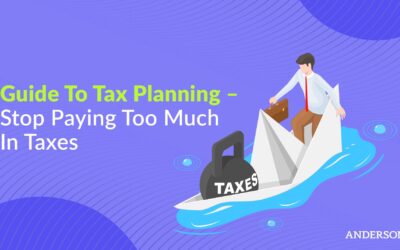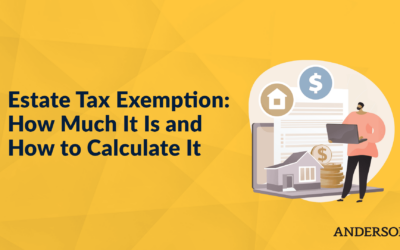Financial freedom is the goal of a growing community of people who wish to take control of their finances and increase their savings. Those who have saved enough can retire early or reduce their work week in favor of more free time. Here are some steps you can take to reach your financial independence quickly and safely.
9 Steps for Achieving Financial Independence
- Determine your Financial Independence Number
- Set Realistic Goals
- Set a Budget
- Cut Expenses
- Increase Income
- Get out of Debt
- Investments and Retirement Planning
- Taxes and Estate Planning
- Protect Your Assets
Obtaining financial independence means different things to different people. Depending on your unique situation, it may mean being able to quit your job and live the life you’ve always wanted. You don’t have to retire early to be financially independent. Many people simply wish to become debt-free or earn enough passive income to pursue a new career or hobby. Regardless of your motivation, there are a variety of methods you can use to achieve financial independence (FI). A growing community under the banner “Financial Independence Retire Early” (FIRE) serves to raise awareness that early retirement is entirely achievable. Here are some of the steps you may want to consider on your path towards achieving FIRE.
1. Determine your Financial Independence Number
Depending on your goals and desired lifestyle, there is a specific amount of money you’ll need to save in order to retire. This number varies from person to person and is broadly based on assumptions about the future. You can estimate your financial independence (FI) number by considering your yearly income, expenses, and goals. Next, the rate that you withdraw funds from your savings each year is important when calculating how much you need to save. Typically, a 3-4% annual withdrawal rate from your savings is considered a safe choice. This is the money you can withdraw each year without significantly impacting your savings.
For example, $2 million in savings with a 3% withdrawal rate allows for a lifestyle allowance of $60,000 a year. Once you know how much you need to save you can start planning how to achieve that number. The more you increase your savings rate the faster you can achieve your FI number and a life of financial freedom.
2. Set Realistic Goals
An important step in the goal-setting process is to determine what you want to achieve financially. Saving enough to retire early may not be the main goal; you may simply wish to earn enough to take an extra day or two off each week. There are a few important things to consider with early retirement. First, you will not have access to all of your retirement investments until you reach a certain age, usually 66. You may be able to pull from some accounts earlier, but typically you will face penalties for early withdrawals. On the other hand, your retirement accounts should allow your investments to grow with tax-free compounding. It is also important to point out that Medicare eligibility is based on work credits and how much you have worked in your lifetime. Early retirement may impact your eligibility.
The future is unknown and drastic changes in the economy could greatly impact early retirement planning. You should also consider the possibility of personal injury and other unexpected medical expenses. There are many unexpected events that could bring extra costs, such as housing or automobile trouble. Consider what kind of emergency fund would best fit your lifestyle.
Education costs and starting a family will also incur expenses. You may want to ensure that your estimated annual withdrawal rate is high enough to cover any unexpected events, as well as medical expenses after 65. Considering these factors, you should set realistic goals and determine the amount of money you need to safely declare financial independence.
3. Set a Budget
An important tool to use while seeking financial independence is a budget. By estimating expenditures and income over a period of time you can gain greater control over your assets. This will also allow you to see where your money goes every month. Carefully consider your living expenses and estimate your future annual expenses when you are retired.
These days, there are many budgeting programs and apps that will help you automatically manage your monthly expenses and control your annual spending. You can also automatically send a portion of any money earned towards your savings, retirement, or investment accounts. For some people, having this done automatically before they see or start spending the money helps. Generally, you want to contribute to the accounts in the order that will give you the best returns. Once you have analyzed your income and expenses, you can create a plan for your excess money and set your savings rate.
Some proponents of the FIRE community encourage the use of credit card deals or other reward programs offered by companies. If you are going to pay for a service or expense anyways, why not benefit from it in some way? This may be worth your time if you can also pay off the balance of the credit cards before they impact you negatively. Using this method allows people to earn free trips and other rewards which will help save money in the long run. The key is to be smart and frugal about them and carefully consider the fine print; otherwise, you may end up doing more harm than good.
4. Cut Expenses
Once you have established a budget and clearly see all your expenses, you can start to determine which ones you can cut. How you decide to lower your expenses depends on the frugal lifestyle you want to live. However, the more expenses you can cut, the more money you can put towards your savings or cut down on debt. Reaching high savings rates of 60% or more may require careful consideration of what you can live without. In some cases, you can opt for cheaper alternatives without sacrificing too much. How much do you spend on entertainment each month? Are there other ways you could enjoy your time and also save money?
Some of the biggest expenses for most people are housing and transportation costs. Perhaps you can move to a smaller house or even to a cheaper area. Even those making over $70,000 a year may not be saving enough to retire early. It can pay to cut unnecessary expenses if you don’t really need them. Some early retirees are moving to countries like Thailand or Portugal, where passive income and savings might go much further. Before making a drastic move, however, you should consider talking with an attorney. There may be many factors you need to consider. This includes taxation in other countries and how to protect yourself and your investments before, during, and after any move.
5. Increase Income
Another important component of financial independence is income. If you get serious about your finances, you can save towards retirement at almost any income level. The more you can save–and the sooner you start saving–the faster you can reach your early retirement goals. If you can increase your income, you’ll be able to save more quickly.
You want to increase your passive income and net worth through sources such as rent, investments, and intellectual property. Consider working a second job, if possible. In some cases, you might accomplish multiple goals towards your FI number by moving to a lower cost area for a higher paying job. If your goal is to leave the 9 to 5 work week behind, you might consider starting your own business instead. There are plenty of places, especially online, that help small businesses and freelancers find work.
Be aware that there is a danger lurking behind increased income and wealth. “Lifestyle creep” is something that may sabotage your quest for financial freedom. When you suddenly make more money, you might be tempted to spend more on unnecessary purchases. But with frugal living, you can invest that money into a retirement account instead.
6. Get out of Debt
Debt definitely strains your ability to save and can directly hinder your steps toward fiscal independence. There are options available to you, depending on the nature of your liabilities. You may want to consult with an attorney or tax lawyer to make sure you are taking advantage of your best opportunities. In some cases, you may be able to consolidate your debt and reduce your interest rates. Some credit cards offer interest-free promotions which may afford you a temporary extension to pay off the debt. However, taking on additional loans comes with fine print as well, so be sure to carefully consider these options. If your debt is tax-related, you may be eligible for tax debt relief or similar relief programs. Reach out to a tax professional today for more information.
7. Investment and Retirement Planning
Planning is one of the most important aspects of achieving early retirement and financial independence. A knowledgeable financial advisor can be a valuable resource during this planning process. There are many programs and opportunities that you can take advantage of to maximize your savings. For example, your employer may offer an investment matching program towards your retirement account. You should maximize your pre-tax savings opportunities whenever you can, by contributing the maximum amount towards your annual limits. You can only add a limited yearly amount to these tax-free accounts because they are such a great deal. Besides your 401(k) and IRA, you may also want to consider the benefits of a Health Savings Account (HSA).
The collection of investments you have in your portfolio may perform best with a diverse range of choices based on the risks and expected rewards. You can diversify across different industries and mutual funds using an assortment of investment vehicles. Your exact investing needs will depend on your specific goals and the acceptable level of risk. Some stocks and bonds will offer riskier returns than others.
Seek professional advice on how to structure your retirement savings. A financial advisor will be able to help you tap into certain assets at the right times during your retirement and can also help you plan for any emergency expenditures.
8. Taxes and Estate Planning
You will always need to analyze the impact of taxes when considering your financial future. How will your current tax bracket compare to your expected post-retirement tax bracket? Does it make more sense for you to use a Roth IRA or traditional IRA? If you are working a side job or earning money that’s not subject to tax withholding, you may be responsible for quarterly estimated payments.
Failure to pay the right amount of tax at the right time can leave you with a tax bill and associated fees and penalties. A tax attorney can help you prevent IRS issues in a variety of ways, depending on your situation. You may even be eligible for tax debt relief.
It’s also important to consider your estate. What should happen to your assets when you die? You have a variety of options for maximizing the benefits for your family. You also need to consider the impact of gifting and your lifetime limits. The assets you wish to pass on to your loved ones may be facing heavy taxes unless you plan your estate carefully. If you have any real estate investments, perhaps a real estate trust would be beneficial. Reach out to Anderson Advisors for more information about minimizing your end-of-year liabilities.
9. Protect Your Assets
To become financially independent, you need to protect your money and assets. There are a variety of ways to do this, such as purchasing insurance for your property, vehicles, and yourself. You should also consider a will and living trust to help protect your investments from unnecessary taxation. Avoiding unnecessary costs due to injuries or fiscal problems will help you reach financial freedom faster. Speak to an advisor for more information on how to protect your assets.
Financial Freedom
Fiscal independence starts by determining what you need to save in order to retire early or achieve a similar goal. Once you have a savings goal, you can set a budget that will help your savings grow. To reach financial independence quickly, you can cut expenses and increase your cash flow– but watch out for lifestyle creep, and don’t give in to the temptation of buying unnecessary items.
Getting out of debt is a crucial step towards growing your savings. It is also important to carefully consider your investments as you plan for retirement. Meet with a financial advisor for help protecting your assets. This includes strategic end-of-life estate planning to minimize your tax liability.
There are many things you need to consider on your path towards fiscal independence. Reach out to Anderson Advisors today to see how we can help you achieve financial freedom.

















